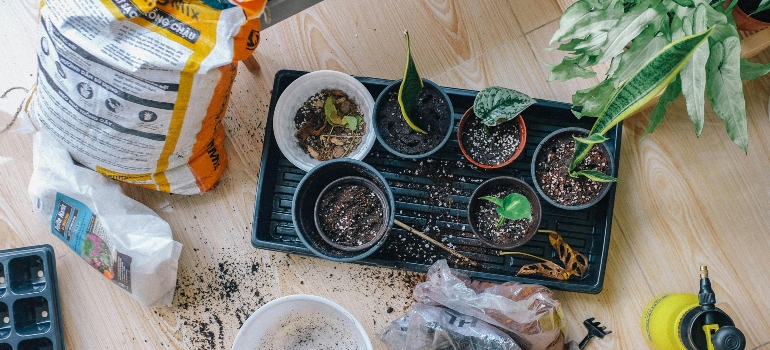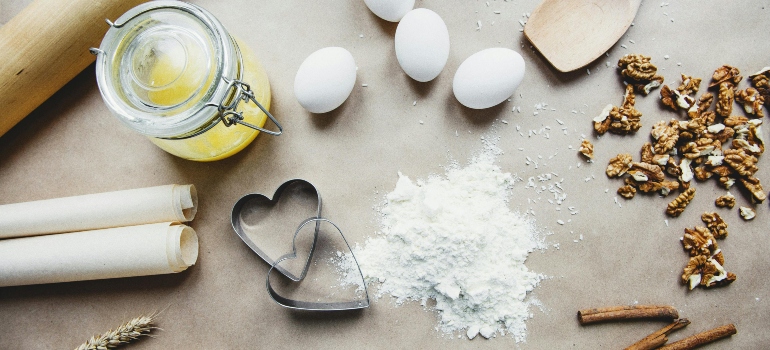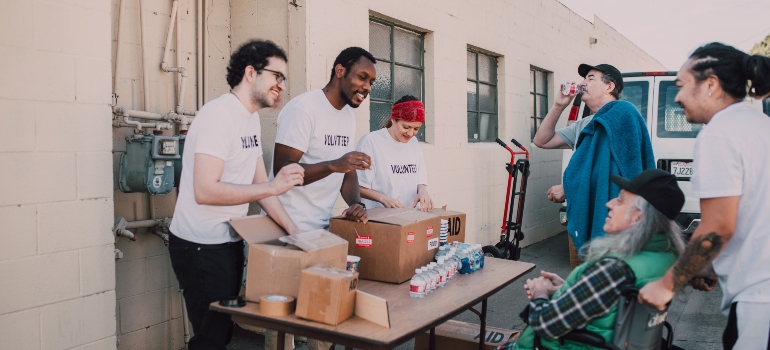Rehabilitation for substance abuse is a journey of healing and rediscovery. It’s a time when individuals are given the opportunity to rebuild their lives, step by step, with each day bringing them closer to recovery. One of the parts of successful rehab is engaging in activities that not only occupy your time but also contribute to your physical, emotional, and mental well-being. Hobbies play a crucial role in this process, offering a sense of purpose, a source of relaxation, and a chance to develop new skills or rekindle old passions. Here, we’ll introduce you to 10 hobbies to explore at rehab that have been widely recognized for their positive impact on individuals with the disease of addiction.
Top 10 Hobbies to Explore at Rehab and Their Importance
Discovering and engaging in hobbies while in rehab can profoundly impact your journey toward recovery. If you’re in residential treatment, this time can serve as a golden opportunity to explore new interests or reconnect with old ones within a nurturing and structured setting. Here’s why hobbies are so beneficial during this time:
- Therapeutic benefits: Hobbies act as a form of addiction therapy; they can soothe the mind, reduce stress, and alleviate symptoms of depression and anxiety.
- Routine and structure: Residential treatment offers a break from the chaos and triggers of everyday life, providing a safe space to establish healthy routines. Incorporating hobbies into these routines adds structure to daily life.
- Skill development and self-esteem: Learning new skills or enhancing existing ones through hobbies can significantly boost self-esteem and confidence.
- Substance-free enjoyment: Hobbies provide fulfilling and enjoyable experiences without the need for substances.
- Coping mechanism: Hobbies can serve as healthy coping mechanisms for dealing with stress, boredom, or negative emotions. They offer a productive outlet for energy and feelings.

1. Art Therapy
Art therapy is a form of expression that allows you to communicate your thoughts and feelings through painting, drawing, and other art forms. It’s a powerful way to process your emotions, explore self-expression, and find a sense of relief or understanding in what you’re going through. The beauty of art therapy is that it’s accessible to everyone; you don’t need to be an artist or have any previous experience with art to benefit from it.
However, it may be especially beneficial to those who find it challenging to articulate their thoughts, feelings, and experiences through words alone. Art therapy rehabilitation offers an alternative, non-verbal mode of communication. Additionally, addiction is frequently intertwined with past trauma. Art provides a gentle way for individuals to process traumatic experiences without the need for verbal recounting, which can sometimes be retraumatizing. This can lead to significant breakthroughs in healing and recovery.
2. Writing
During substance abuse treatment WV rehabs offer, exploring writing as a hobby offers you a unique opportunity for self-reflection and growth. Through the act of writing, whether it’s keeping a journal, expressing yourself through poetry, or crafting short stories, you can find a powerful outlet for processing your thoughts and emotions. When you’re feeling overwhelmed, putting your feelings into words can help you make sense of them, bringing clarity and relief.

By writing about your experiences, you can start to identify patterns and triggers that may contribute to your substance use, empowering you to develop strategies for coping with these challenges. Setting goals and tracking your progress through writing can provide motivation and a sense of accomplishment as you work toward your recovery.
Celebrating your successes, no matter how small, can reinforce your commitment to sobriety and remind you of how far you’ve come. Additionally, reflecting on the lessons you’ve learned along the way can deepen your understanding of yourself.
3. Music Therapy
Music therapy is a valuable tool in addiction rehab, offering a range of benefits for individuals on their journey to recovery. Whether you’re playing an instrument, singing, or simply listening to music, this therapeutic practice has the power to reduce stress, improve mood, and enhance overall well-being. Research has shown that music can have a profound impact on the brain, triggering the release of neurotransmitters such as dopamine and serotonin, which are associated with pleasure and happiness. Additionally, engaging with music can help regulate emotions, providing a healthy outlet for expressing feelings and coping with challenges. For those in rehab, music therapy offers a safe and enjoyable way to relax, unwind, and connect with themselves on a deeper level.
4. Gardening
Gardening emerges as one of the best hobbies to explore at rehab, as it benefits individuals of all ages and backgrounds. The reasons include:
- Therapeutic escape: Gardening offers a peaceful retreat from the challenges of addiction recovery, allowing individuals to find solace in nature and the nurturing process of plant care.
- Stress reduction and relaxation: Engaging with nature and tending to plants can have a calming effect on the mind and body, reducing stress levels and promoting relaxation during the rehab journey.
- Sense of purpose and accomplishment: Witnessing the growth and progress of plants over time provides a sense of achievement, boosting self-esteem and motivation essential for recovery.
- Physical activity: Gardening encourages physical movement and exercise, whether it’s planting seeds, watering plants, or tending to garden beds, promoting overall well-being and vitality.
- Connection with nature: Gardening fosters a deeper connection with the natural world, offering moments of mindfulness and reflection as individuals engage in the care and nurturing of living organisms.
- Development of life skills: Taking care of plants requires patience, attentiveness, and presence, qualities that can translate into other areas of life.

5. Yoga and Meditation
Yoga can be a fantastic hobby to explore during recovery from addiction. By practicing yoga and meditation, individuals can experience a range of benefits that support their overall well-being. Here’s how:
- Physical fitness: Yoga involves gentle stretching, strengthening, and balancing exercises that help improve flexibility, muscle tone, and overall physical fitness.
- Mental clarity: Through focused breathing and mindfulness techniques, yoga promotes mental clarity and concentration. It helps individuals become more aware of their thoughts and emotions.
- Emotional balance: Yoga encourages a sense of inner peace and emotional stability. By connecting the mind, body, and breath, individuals can cultivate a greater sense of self-awareness and emotional resilience, helping them cope with cravings.
- Stress reduction: The practice of yoga is known to reduce levels of cortisol, the stress hormone, in the body. Yoga for addiction recovery helps individuals release tension and find moments of calm.
- Craving management: Yoga provides a healthy outlet for managing cravings and urges associated with addiction.
6. Cooking and Baking
Cooking and baking can be wonderful hobbies to explore at rehab. Not only do they provide a creative outlet for expressing oneself, but they also offer practical skills that can be beneficial in maintaining a healthy lifestyle. By learning to prepare nutritious meals and delicious treats, individuals can take control of their diet and develop healthier eating habits. Moreover, the process of cooking and baking can be therapeutic, helping to reduce stress and anxiety while fostering a sense of accomplishment.

Anyone can benefit from these hobbies, regardless of their culinary experience. For those who may have neglected their nutrition during their addiction, cooking and baking provide an opportunity to reconnect with food in a positive and nourishing way. Additionally, individuals who struggle with cravings or emotional eating can find solace in the kitchen, channeling their energy into creating delicious and wholesome meals instead of turning to substances for comfort.
7. Exercise and Fitness
Exercise and fitness are incredibly useful hobbies to explore at rehab. Engaging in physical activity has been shown to have numerous benefits for both the body and mind. For starters, exercise boosts mood by triggering the release of endorphins, often referred to as “feel-good” hormones. These chemicals help reduce feelings of stress, anxiety, and depression, leaving individuals feeling happier and more content.
Additionally, regular physical activity increases energy levels, helping individuals combat fatigue and stay alert throughout the day. From a health perspective, exercise plays a crucial role in maintaining overall wellness. It strengthens the heart and lungs, improves circulation, and helps manage weight, reducing the risk of chronic diseases like heart disease, diabetes, and high blood pressure.
In rehab, exercise serves as a positive outlet for stress and cravings, providing a healthy alternative to substance use. Some activities to try include walking, jogging, swimming, or cycling, all of which are accessible to individuals of varying fitness levels.
8. Mindfulness and Mindfulness-Based Stress Reduction (MBSR)
Mindfulness and Mindfulness-Based Stress Reduction (MBSR) are powerful practices that offer a range of benefits for individuals in addiction recovery. It involves bringing one’s attention to the present moment, without judgment or attachment to thoughts or emotions. MBSR, developed by Dr. Jon Kabat-Zinn, is a structured program that incorporates mindfulness techniques to help individuals manage stress, pain, and illness.
These practices can be particularly useful in addiction recovery for several reasons. Firstly, mindfulness helps individuals become more aware of their thoughts, emotions, and physical sensations, allowing them to recognize triggers for substance use and develop healthier coping strategies.

Moreover, mindfulness promotes emotional regulation and resilience, enabling individuals to navigate cravings, urges, and difficult emotions with greater ease. It helps people cultivate a nonjudgmental attitude towards their experiences that can reduce the intensity of negative emotions and prevent them from spiraling into relapse.
Additionally, mindfulness fosters a sense of inner peace and contentment, helping individuals find joy and fulfillment in the present moment rather than seeking gratification from substances. Through practices such as mindful breathing, body scans, and meditation for addiction, individuals can develop a deeper connection with themselves and the world around them.
9. Reading
Reading is a wonderful hobby to explore at rehab. Firstly, reading provides a healthy escape from the stress and challenges of recovery. When you read a book, you’re transported to another world, allowing you to take a break from your own worries and concerns.
Moreover, reading can be a source of inspiration and motivation. By exploring stories of resilience, overcoming obstacles, or personal growth, you may find encouragement and guidance for your own journey to sobriety. Additionally, it stimulates your mind and imagination, keeping your brain engaged and active. This mental exercise can improve cognitive function, memory, and focus, which are all important aspects of recovery.
Furthermore, reading offers a constructive way to fill your free time and distract yourself from cravings or urges to use substances. Instead of turning to drugs or alcohol for entertainment, you can lose yourself in a book and find enjoyment and fulfillment in the process.
10. Volunteering
Volunteering is a fantastic way to give back to your community while also helping yourself during addiction recovery. When you volunteer, you’re offering your time and skills to support others in need, whether it’s at a local charity, community center, or animal shelter.
One of the great things about volunteering is that it gives you a sense of purpose and fulfillment. By contributing to something larger than yourself, you can feel good about making a positive difference in the lives of others.

Moreover, volunteering provides valuable opportunities for social interaction and connection. Building relationships with fellow volunteers and the people you’re helping can combat feelings of isolation and loneliness, which are common during recovery.
Additionally, volunteering offers a chance to learn new skills and gain valuable experience. Whether you’re working in a food pantry, tutoring children, or helping with community events, you can develop confidence, leadership abilities, and a sense of accomplishment.
The Best Hobbies to Explore at Rehab
Finding hobbies to explore at rehab can be incredibly beneficial for individuals on their journey to recovery. Whether it’s engaging in art therapy, cooking, exercising, or volunteering, hobbies offer a range of advantages, from reducing stress and cravings to promoting physical fitness and emotional well-being. Incorporating these activities into your daily life can help you find joy, purpose, and fulfillment. If you or a loved one is struggling with addiction and in need of support, don’t hesitate to reach out for help. Contact our West Virginia Treatment Center today to learn more about our comprehensive addiction treatment programs.



